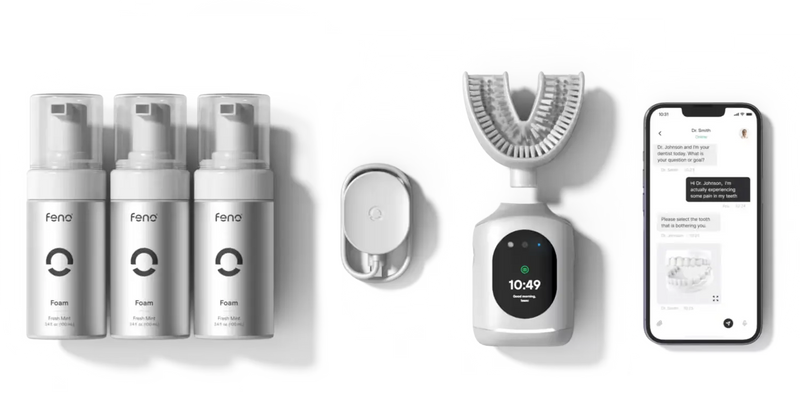
Are Dental X-Rays Safe, and Why Are They Necessary?
Essential Takeaways
- Dental X-rays are extremely safe with minimal radiation exposure and absolutely essential for detecting hidden oral health issues that can't be seen during a visual examination.
I often hear concerns from patients about the safety of dental X-rays. While these concerns are understandable, I want to address them head-on with facts and science.
The Safety of Modern Dental X-Rays
Today's dental X-ray technology has evolved dramatically, making them safer than ever before. Here are some reassuring facts:
- Minimal Radiation Exposure: A full set of dental X-rays exposes you to approximately 0.005 millisieverts of radiation - less than the amount of radiation you'd receive on a short 1-2 hour airplane flight.
- Digital Advancement: Modern digital X-rays used in most dental offices reduce radiation exposure by up to 80% compared to traditional film X-rays.
- Safety Measures: The protective lead apron and thyroid collar you wear during X-rays shield vital organs from the already minimal radiation.
In fact, according to the American Dental Association, the risk from dental X-rays is so small that it's difficult to measure. You're exposed to more background radiation from natural sources in your daily life than from dental X-rays.
Why X-Rays Are Essential for Oral Health
Despite their minimal risk, dental X-rays provide tremendous value in detecting oral health issues:
- Early Detection: X-rays can identify cavities between teeth and under existing fillings that are impossible to see during a visual exam, including approximately 50% of interproximal cavities (cavities between teeth).
- Prevention of Major Issues: They allow us to detect bone loss from gum disease, which affects nearly 50% of adults over 30 in the United States.
- Beyond Teeth: X-rays can reveal abscesses, cysts, tumors, and other abnormalities that may have no symptoms in early stages.
- Comprehensive Care: They provide critical information for procedures like root canals, implants, and extractions, ensuring safer and more effective treatment.

The Connection to Overall Health
Oral health is intricately connected to overall health. Problems that start in the mouth can contribute to serious systemic conditions like heart disease, diabetes complications, and even some forms of cancer.
Early detection through X-rays isn't just about saving teeth – it's about protecting your overall health. This is why we've developed the Feno Smartbrush system to help you maintain optimal oral health between dental visits.
How Often Should You Get Dental X-Rays?
The frequency of dental X-rays depends on your individual oral health needs. For adults with good oral health and no immediate issues, bitewing X-rays are typically recommended every 12-24 months, while a full set might be taken every 3-5 years.
However, if you have active dental disease, a history of extensive dental work, or certain risk factors, your dentist may recommend more frequent X-rays.
The Bottom Line
Dental X-rays are a safe, necessary tool in preventive dental care. The minimal radiation exposure is far outweighed by the benefit of early detection and treatment of oral health issues.
At Feno, we believe in combining proven dental practices like X-rays with innovative technology like our Smartbrush to give you the most comprehensive oral care possible. Remember – protecting your oral health isn't just about a beautiful smile; it's about safeguarding your overall health and wellbeing.

Feno Founders Edition Bundle
Advanced Oral Health in 20 Seconds with the Feno Smartbrush™
Get Yours Now!Meet the Author


We founded Feno to revolutionize dental care, understanding the vital connection between oral and overall health. Our tech driven products offer more than superb cleaning—they give you routine & insightful health monitoring to help improve your overall health.
View more on LinkedIn

